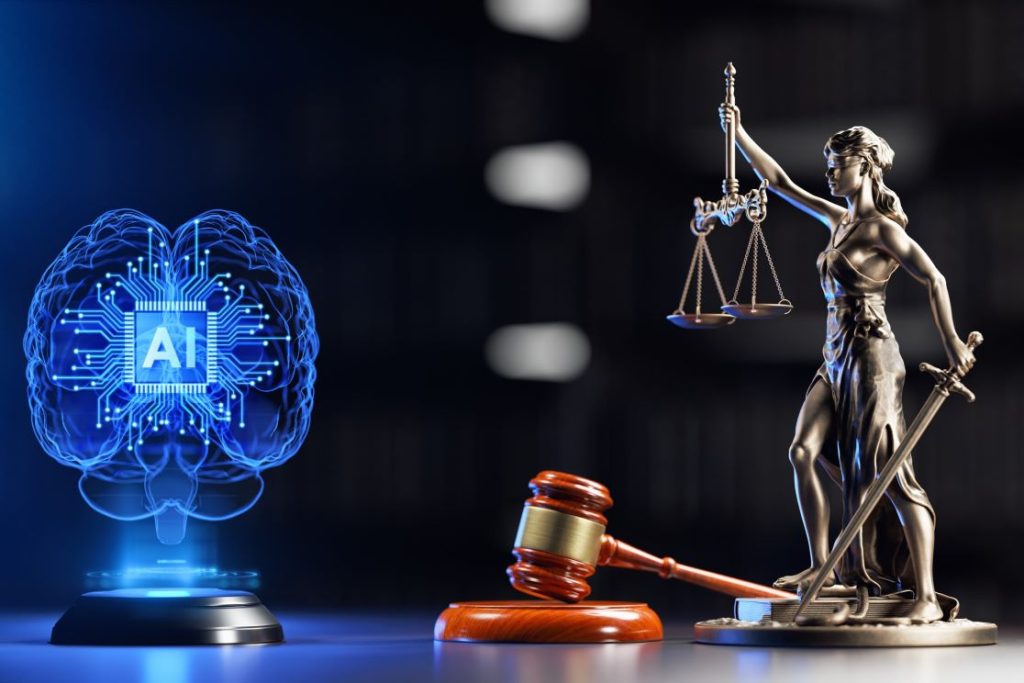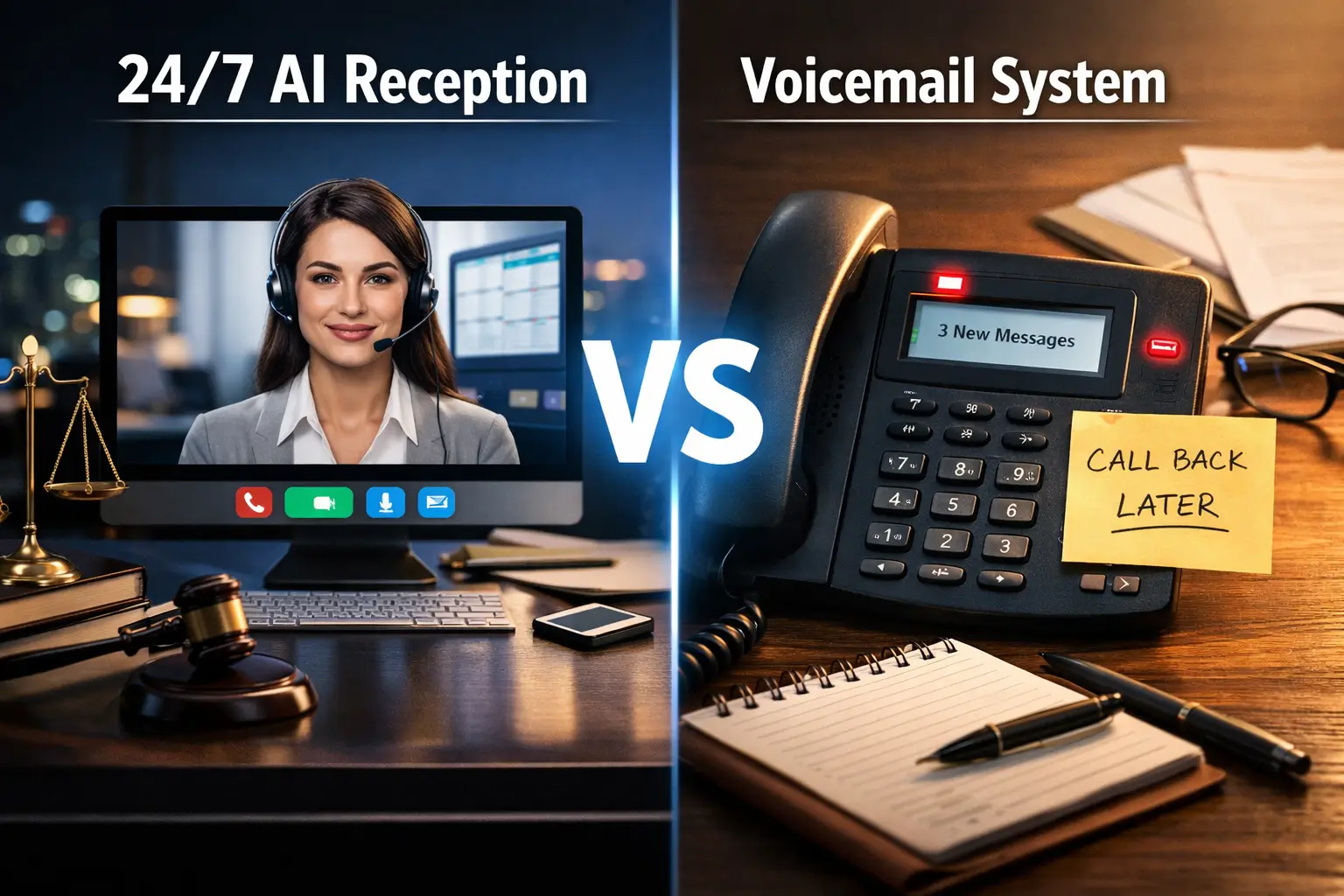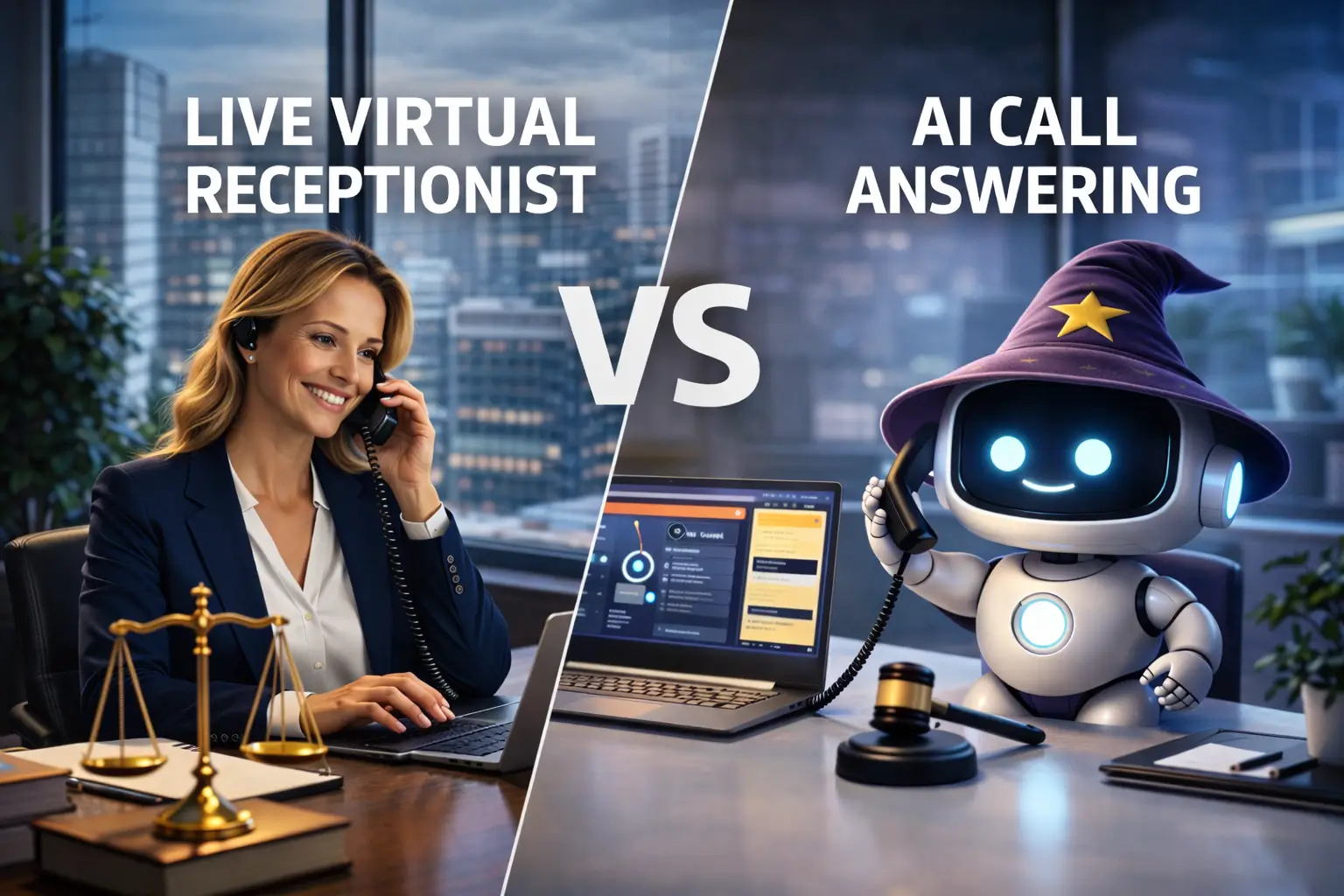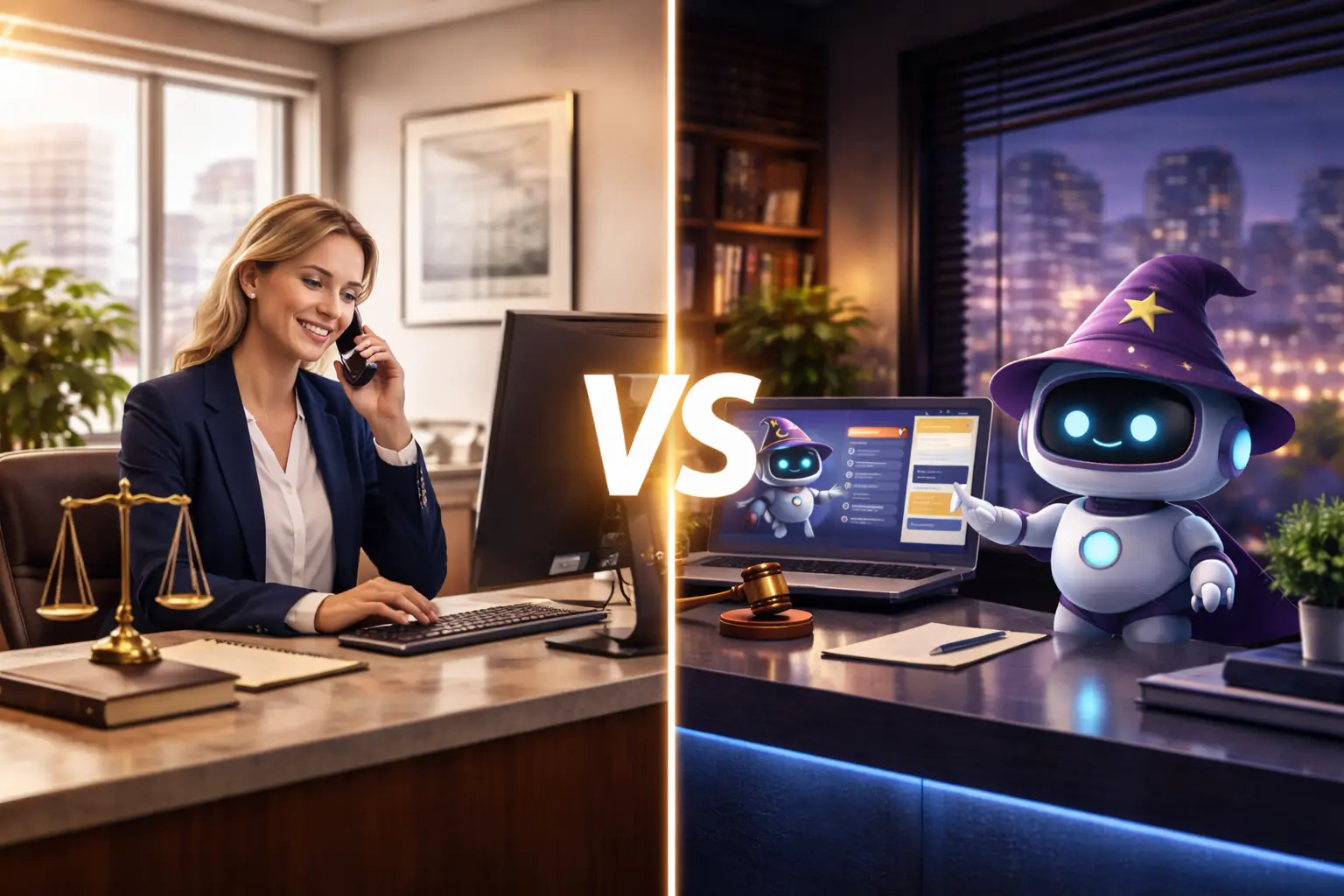
Artificial Intelligence (AI) is transforming how law firms communicate with clients. From automating intake calls to providing real-time case updates, AI call centers like TeleWizard help legal professionals save time, increase efficiency, and deliver round-the-clock responsiveness.
Yet, like any transformative technology, successful adoption requires careful planning. While AI brings enormous advantages, faster responses, lower costs, and higher lead conversion, it also introduces challenges that firms must manage wisely.
This article explores the top five challenges law firms face when using AI for client calls, and how to overcome them without sacrificing compliance, quality, or client trust..
Why Law Firms Are Turning to AI for Client Communication
Law firms are adopting AI systems to streamline communication, capture more leads, and enhance client service.
AI call centers and voice assistants enable:
- 24/7 call answering and intake
- Automatic client data collection and CRM syncing
- Intelligent call routing
- Real-time appointment scheduling
- Consistent, professional tone across all interactions
For busy firms, particularly in personal injury, immigration, and family law, AI ensures no inquiry is ever missed and every client gets an immediate, accurate response.
Challenge 1: Maintaining a Human Touch in Legal Conversations
Law is deeply personal.. Clients often call when they’re stressed, anxious, or emotionally vulnerable, especially in cases involving injuries, family disputes, or financial loss.
If an AI system isn’t properly tuned, it may sound mechanical, potentially creating a disconnect during these moments.
💡 Solution:
Choose emotionally intelligent AI, such as TeleWizard, which uses advanced Natural Language Processing (NLP) and sentiment detection to interpret tone and adjust phrasing dynamically.
AI agents can adjust tone, pacing, and phrasing accordingly, showing empathy through verbal cues such as:
- “I’m really sorry to hear that. Let’s get you the help you need.”
- “I understand this must be stressful. May I take a few details to assist you better?”
TeleWizard also includes automatic human escalation, seamlessly transferring sensitive or distressed callers to live staff for compassionate follow-up.
Challenge 2: Ensuring Data Privacy and Client Confidentiality
Protecting client information is a core ethical and legal duty. AI systems handling calls must safeguard names, case details, and contact information from unauthorized access.
Common risk areas include unencrypted call data, poor third-party integrations, or over-retention of call logs.
💡 Solution:
Law firms should adopt systems with enterprise-grade encryption and clear data-handling policies.
TeleWizard ensures:
- AES-256 encryption and secure cloud storage
- Compliance with GDPR, CCPA, and state privacy rules
- Configurable data-retention policies
- Access restricted to authorized firm users
This approach keeps attorney-client confidentiality fully intact and verifiable.
Challenge 3: Integration with Existing Law Firm Systems
Many firms already rely on CRMs, billing tools, and case-management software. Integrating AI call centers with these systems is essential for seamless workflows.
If done improperly, integration may cause duplicate records or missed data entries.
💡 Solution:
Select AI platforms that natively integrate with major legal systems such as
- Clio
- Lawmatics
- PracticePanther
- Salesforce
- HubSpot
TeleWizard’s plug-and-play architecture enables quick connection to existing workflows. A phased rollout, starting with intake, testing syncing, and expanding firm-wide — ensures smooth adoption with minimal disruption.
Challenge 4: Compliance with Legal Ethics and Professional Standards
Attorneys must maintain professional responsibility when using AI, especially regarding confidentiality and representation. Without clear guidelines, firms risk crossing ethical boundaries.
💡 Solution:
- Use a transparent disclaimer at the start of calls: (e.g., “You’re speaking with our virtual assistant, who will help connect you with the right attorney.”)
- Configure AI strictly for informational purposes, not legal advice.
- Conduct periodic supervisory reviews of AI call transcripts to ensure accuracy and compliance.
Legal-grade systems like TeleWizard are pre-configured to meet bar-compliance standards and prevent unauthorized advice or misstatements.
Challenge 5: Implementation Costs and Staff Resistance
Although AI drastically lowers long-term costs, some teams may hesitate at first, worried about job changes or workflow disruption.
💡 Solution:
Frame AI adoption as augmentation, not automation. AI handles repetitive tasks (like screening or scheduling), freeing staff to focus on clients and strategy.
To ease adoption:
- Hold staff workshops to demonstrate efficiency gains.
- Share metrics showing time saved and error reduction.
- Launch a 60-day pilot program before full deployment.
TeleWizard’s intuitive design allows most firms to go live within days, proving value quickly and earning staff confidence.
Summary: AI Challenges and Smart Solutions
| Challenge | Impact on Law Firm | Recommended Solution |
| 1. Lack of human touch | Reduced empathy | Use emotionally aware AI + human fallback |
| 2. Data privacy & confidentiality | Compliance risks | Encrypt data + limit access + regular audits |
| 3. Integration complexity | Workflow disruptions | Choose CRM-compatible systems + phased onboarding |
| 4. Legal ethics & compliance | Reputational risk | Add disclaimers + restrict advice + review logs |
| 5. Staff adaptation | Gradual adoption | Training + pilot rollout + transparent metrics |
Looking Ahead: How Law Firms Can Prepare for AI’s Future
AI is no longer experimental, it’s foundational. The next evolution will bring:
- Real-time transcription during consultations
- Automated document generation from client calls
- Voice-based identity verification
- Predictive follow-ups using call analytics
Law firms that plan for these capabilities today will lead tomorrow’s legal innovation.
FAQs
Q1: Can AI replace human intake specialists entirely?
Not fully. AI handles high-volume, repetitive, and after-hours calls efficiently, while humans manage complex or emotionally charged matters.
Q2: Is AI suitable for all practice areas?
Yes. AI call centers like TeleWizard are adaptable to all areas of law, including personal injury, family law, immigration, criminal defense, employment law, estate planning, real estate, and corporate law.
Q3: What if clients prefer human interaction?
Modern AI systems are customizable. You can route specific call types to human staff while using AI for general intake and scheduling.
Q4: Can small firms afford AI?
Absolutely. TeleWizard offers scalable plans tailored to solo and small practices.
Q5: Is AI ethically accepted in law?
Yes. When used transparently and with supervision, AI aligns with state bar guidelines and client-care standards.
Conclusion
AI call centers are redefining client communication in law firms, combining speed, accuracy, and empathy. Success depends on proactive management of human tone, privacy, integration, ethics, and staff readiness.
By choosing trusted solutions like TeleWizard, law firms can stay compliant, build stronger client relationships, and lead confidently into the AI-driven future of legal services.



